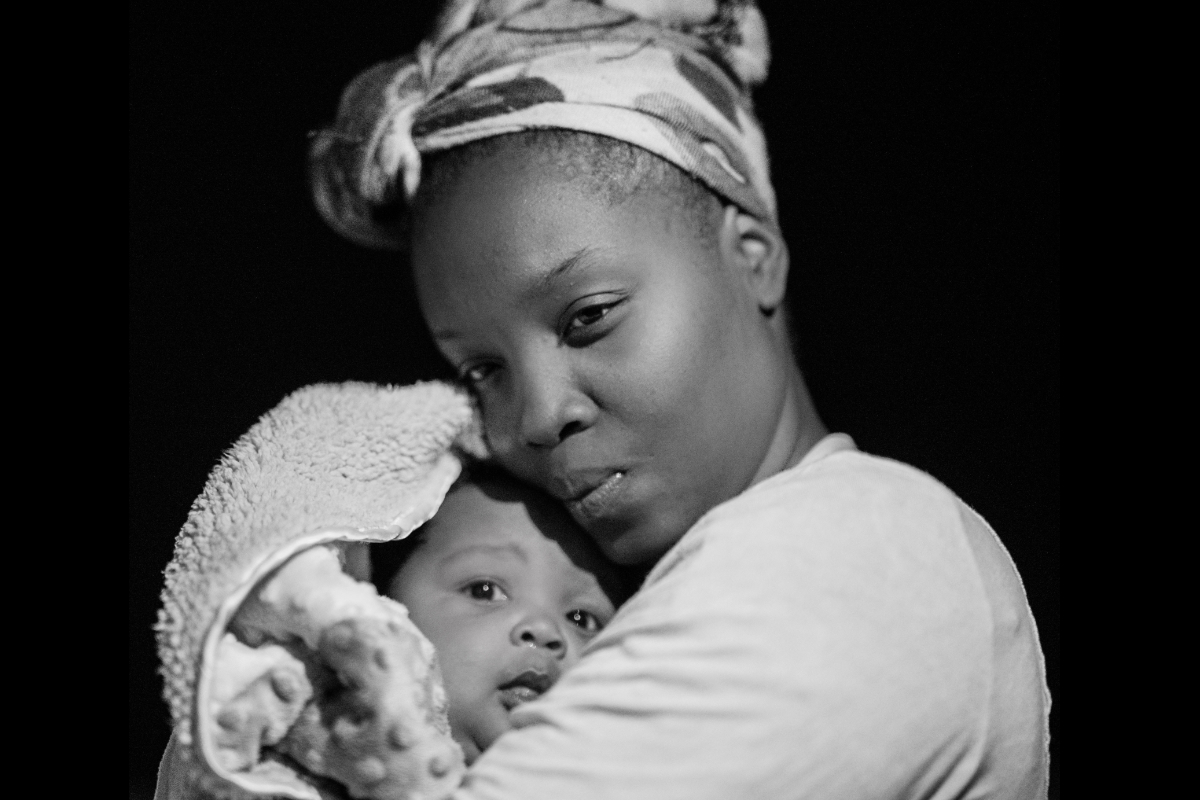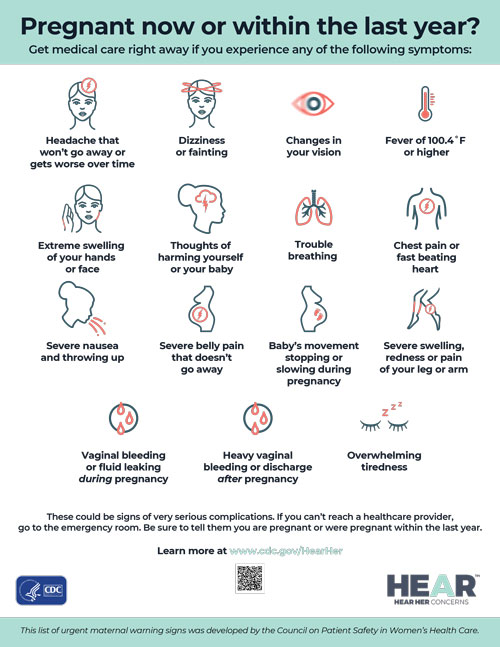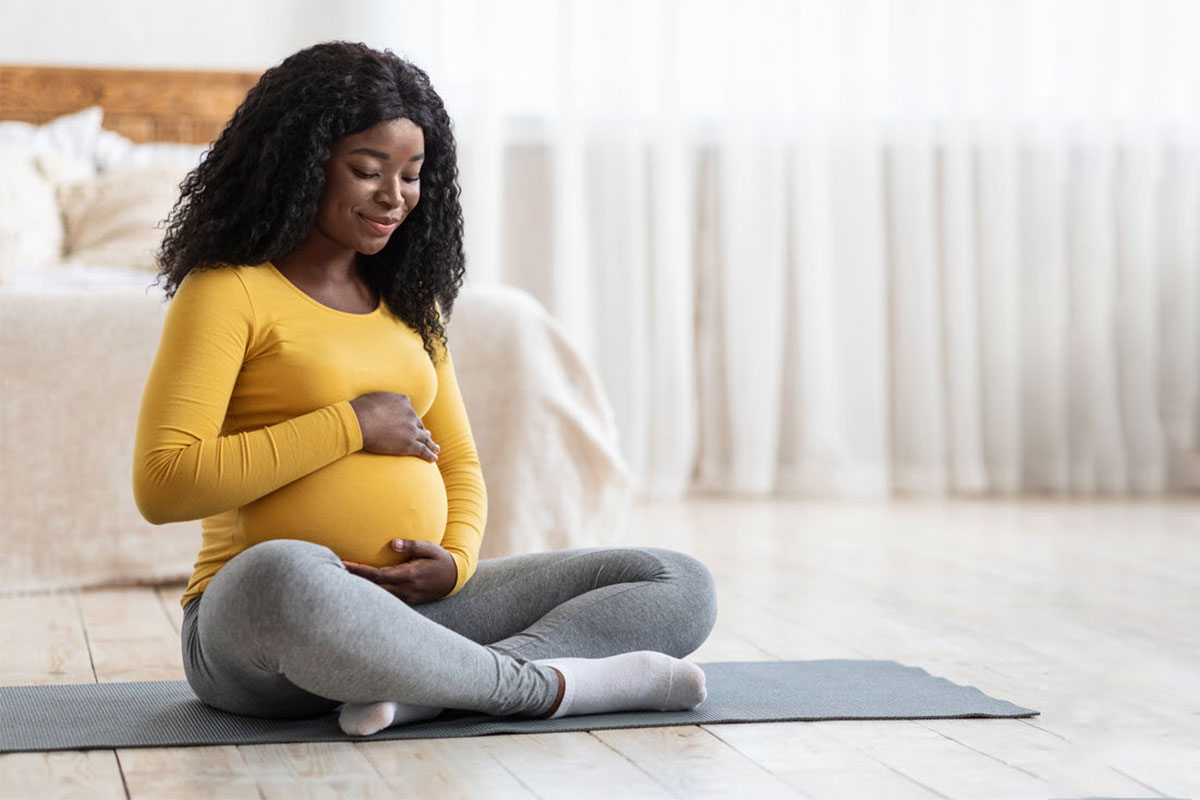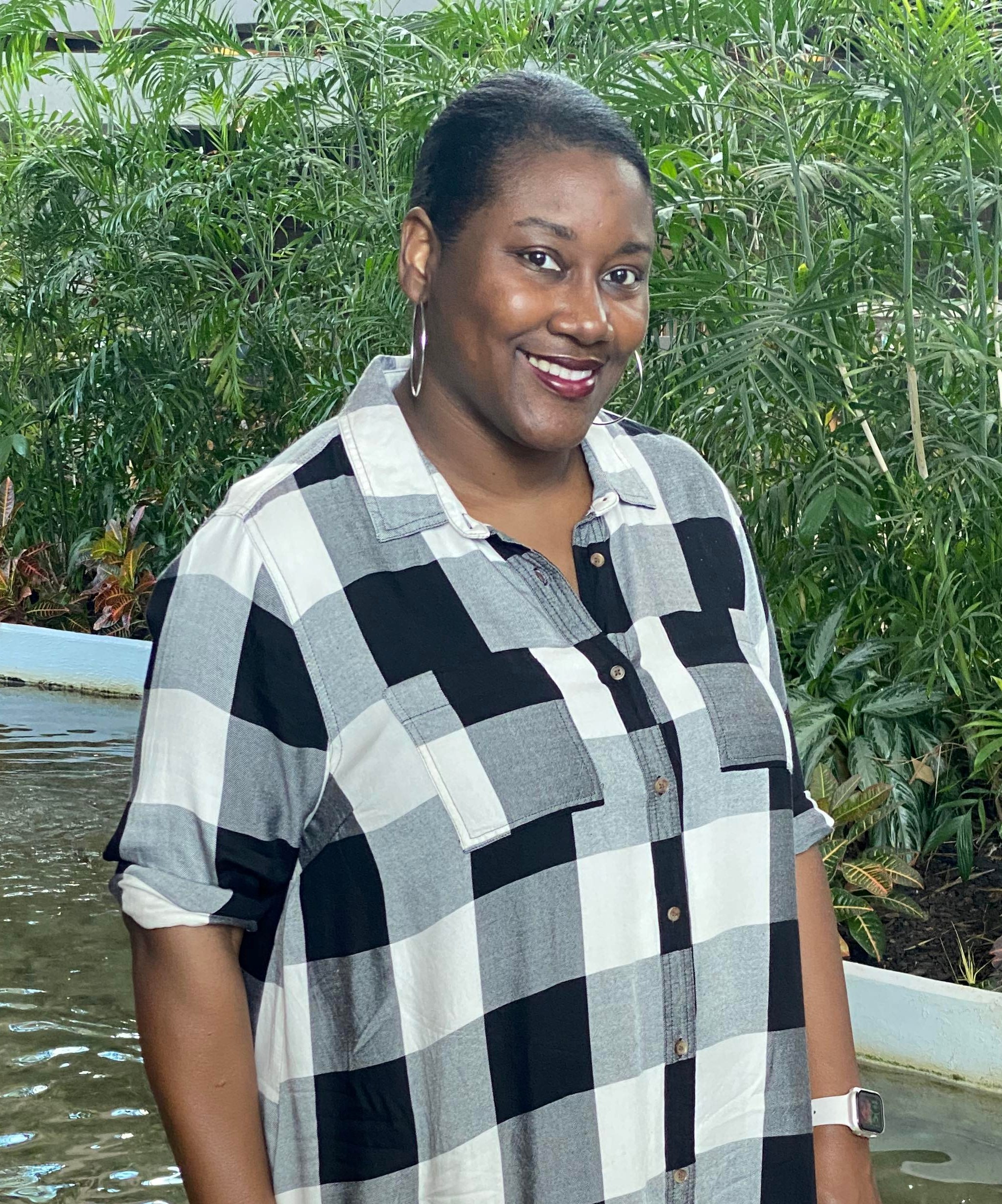I have a pandemic baby. Yes, I said a pandemic baby.
For those of you who aren’t familiar with TikTok, there is a running joke about babies born during the pandemic. “Pandemic babies” are babies born in 2020 to now, and are ahead of the curve. These babies seem to talk, walk and teeth very early compared to the average baby.
This was my third pregnancy, and it would be my third c-section. I was excited, but I was also scared and concerned for my health. I was going into this pregnancy at high risk. My first child was born at 28 weeks and weighed 1 pound, 15 ounces. My second child was born and passed away the same day. So, clearly my fear and anxiety were warranted, especially considering the high mortality rate of pregnant Black women.
Statistically, Black women are three times more likely to die from pregnancy-related issues than white women, the Centers for Disease Control and Prevention reports. Structural racism, implicit bias and the lack of quality health care help contribute to this disparity. Studies show that doctors disregard complaints of pain from Black patients, because they believe that Black people feel less pain. Think of Serena Williams’ and Beyonce’s stories of giving birth to their babies. Another well-known story is of Judge Glenda Hatchett’s daughter-in-law dying due to medical negligence after a c-section.
Stories like theirs happen more often than we realize.
Doulas Provide Emotional and Physical Support
Because of my past pregnancies, I was determined to have an amazing postpartum journey, even though I was a high-risk pregnancy. I researched all I could about what to expect while being pregnant and giving birth during the pandemic. I wanted to make sure I understood how COVID-19 affected the birth and labor process.
We knew we were going to need a lot of support because our oldest son was disabled, and I was having a scheduled c-section. So, I spoke with my doctor extensively about our situation, and she offered a wealth of information. She helped my husband and me create a plan conducive to our specific needs and situation.

We talked to our families about care for our eldest and helping with the baby while I recovered. We also explored having a postpartum doula to help with the baby. I’d heard about doulas through a friend of mine, but I wasn’t quite sure until my doctor encouraged me to do more research to find a doula to fit our needs.
A doula is a trained professional who provides emotional, physical, and educational support to women and their families during pregnancy, labor, delivery and after childbirth. Doulas can also specialize in supporting women and their families through miscarriages or stillbirths. The past couple of years have seen a rise in Black clients as well as more Black women becoming doulas.
One of the first doulas I found was on Instagram, @sacredbirthdoula. Unfortunately, she is in New York and was not an option, but was super informative. She heavily advocates for natural home births, for mothers to be comfortable and feel safe while birthing, and is against c-sections that are not medically necessary. She has done extensive research on laws referencing hospitals rules and regulations associated with laboring and birthing for all 50 states and has created a “Rights Over My Birth” Package that includes laws and regulations surrounding COVID-19.
The package included things like “being able to have a support person while laboring and delivering and having a vaginal birth after a previous cesarean.” It is filled with tons of valuable information. For information on how to obtain a copy of the “Rights Over My Birth” Package for your state, please contact her via Instagram.

We settled on two postpartum doulas when our son was born, and they were both amazing. Both followed CDC guidelines and provided negative COVID-19 test results for added comfort. The first doula was a Black, labor and delivery pediatric RN who came and worked overnight for us. We had done a meet-and-greet prior to hiring her, which made everything flow easily. We were able to rest at night, worry free. I could get consecutive hours of sleep before getting up to feed the baby.
Our second doula was just as amazing and more! She would sit and talk with me, giving me the adult conversation I needed outside of my husband. She gave me and taught me how to use a Bengkung belly wrap. That is basically wrapping a long cloth around your torso to help reduce the swelling of the uterus and support the womb during postpartum.
Many cultures use this technique to help with the “snap back” after giving birth. She would even talk to my husband and make sure he was doing well. She washed bottles, washed and folded the baby’s clothes, and kept his nursery organized. She played an integral role in my postpartum journey, and I was so thankful for the care and support she provided.
Lactation Issues in Black Maternal Community
Another resource my doctor suggested was a lactation consultant. If you have ever had a baby, you may know that the hospital has lactation consultants, but they don’t spend a lot of time helping patients because of their caseload. Because our baby was born slightly premature, it was important that I made sure he was latching properly.
Lactation is another issue in the Black maternal community that has racial bias as well as socioeconomic issues. Studies show that most Black mothers do not breastfeed beyond three months due to issues like having to return to work shortly after giving birth. Some hospitals won’t even help Black mothers initiate breastfeeding, but offer baby formula instead.
I was able to find an Internationally Board-Certified Lactation Consultant with more than 10 years of experience in helping women with lactation and was very familiar with helping Black women. An IBCLC is a health professional who specializes in clinical management of breastfeeding. Although there are other types of lactation consultants, such as Certified Lactation Counselors, IBCLCs are the only lactation consultants who have 300 to 1,000 clinical training hours.
Some women may think that a lactation consultant is unnecessary, but for some it is very necessary. Sometimes the baby isn’t latching properly due to a lip or tongue tie. Sometimes the mothers may have insufficient glandular tissue and cannot produce a lot of milk. One of the biggest things I’ve learned is that breastfeeding should not be painful. Most mothers I know that breastfed expressed how painful it was, so I thought it was normal.
Ultimately, being pregnant and giving birth during this pandemic was a little stressful, but because we figured out a plan that worked for us with lots of support, we were able to navigate postpartum during this pandemic rather efficiently. One of our main focuses was to limit COVID exposure to our family, which the doulas and lactation consultant made easier by providing home visits.
It’s important that we recognize and bring awareness to Black maternal health. Check with your insurance to see what types of support are covered as some companies provide doula and lactation coverage.
Here are some local doulas and lactation consultants as well as some online doula and lactation support/information:
Jackson Safer Childbirth Experience: Provides resources to connect you to a doula.
Golden Aura Wellness: Provides postpartum counseling and coaching in Central Mississippi and will connect you to a doula.
SIPPS Mother’s Forum: Provides breastfeeding education, peer support and Free Baby Closet.
The Equipt Mama: Black Doula, Lactation consultant and RN
Editor’s note: The above MFP Voices piece is not providing medical advice of any kind. Please consult your physician about decisions regarding your health care.
This MFP Voices essay does not necessarily represent the views of the Mississippi Free Press, its staff or board members. To submit an essay for the MFP Voices section, send up to 1,200 words and factcheck information to azia@mississippifreepress.org. We welcome a wide variety of viewpoints.






